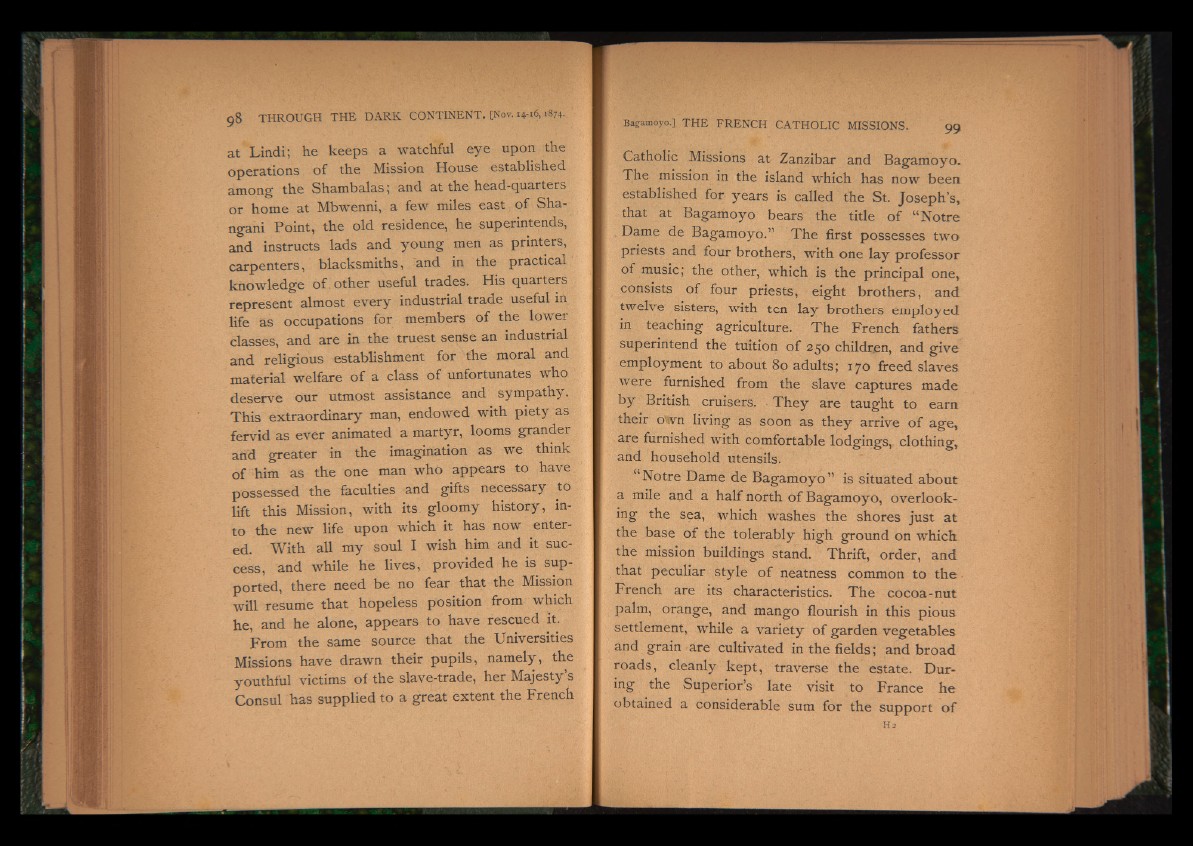
at Lindi; he keeps a watchful eye upon the
operations o f the Mission House established
among the Shambalas; and at the head-quarters
or home at Mbwenni, a few miles east o f Sha-
ngani Point, the old residence, he superintends,
and instructs lads and young men as printers,
carpenters, blacksmiths, and in the practical
knowledge o f other useful trades. His quarters
represent almost every industrial trade useful in
life as occupations for members o f the lower
classes, and are in the truest sense an industrial
and religious establishment for the moral and
material welfare o f a class o f unfortunates who
deserve our utmost assistance and sympathy.
This extraordinary man, endowed with piety as
fervid as ever animated a martyr, looms grander
and greater in the imagination as we think
o f him as the one man who appears to have
possessed the faculties and gifts necessary to
lift this Mission, with its gloomy history, into
the new life upon which it has now entered.
With all my soul I wish him and it success,
and while he lives, provided he is supported,
there need be no fear that the Mission
will resume that hopeless position from which
he, and he alone, appears to have rescued it.
From the same source that the Universities
Missions have drawn their pupils, namely, the
youthful victims of the slave-trade, her Majesty’s
Consul has supplied to a great extent the French
Catholic Missions at Zanzibar and Bagamoyo.
The mission in the island which has now been
established for years is called the St. Joseph’s,
that at Bagamoyo bears the title o f “ Notre
Dame de Bagamoyo.” The first possesses two
priests and four brothers, with one la y professor
o f music; the other, which is the principal one,
consists o f four priests, eight brothers, and
twelve sisters, with ten la y brothers employed
in teaching agriculture. T h e French fathers
superintend the tuition o f 250 children, and g iv e
employment to about 80 adults; 170 freed slaves
were furnished from the slave captures made
b y British cruisers. T h e y are taught to earn
their o\wn living as soon as they arrive o f age,
are furnished with comfortable lodgings, clothing,
and household utensils.
“ Notre Dame de Bag am o yo ” is situated about
a mile and a half north o f Bagamoyo, overlook-
ing the sea, which washes the shores just at
the base o f the tolerably high ground on which
the mission buildings stand. Thrift, order, and
that peculiar s ty le o f neatness common to the
French are its characteristics. T he cocoa-nut
palm, orange, and mango flourish in this pious
settlement, while a variety o f garden vegetables
and grain are cultivated in the fields; and broad
roads, cleanly kep t, traverse the estate. During
the Superior’s late visit to France he
obtained a considerable sum for the support o f
Ha